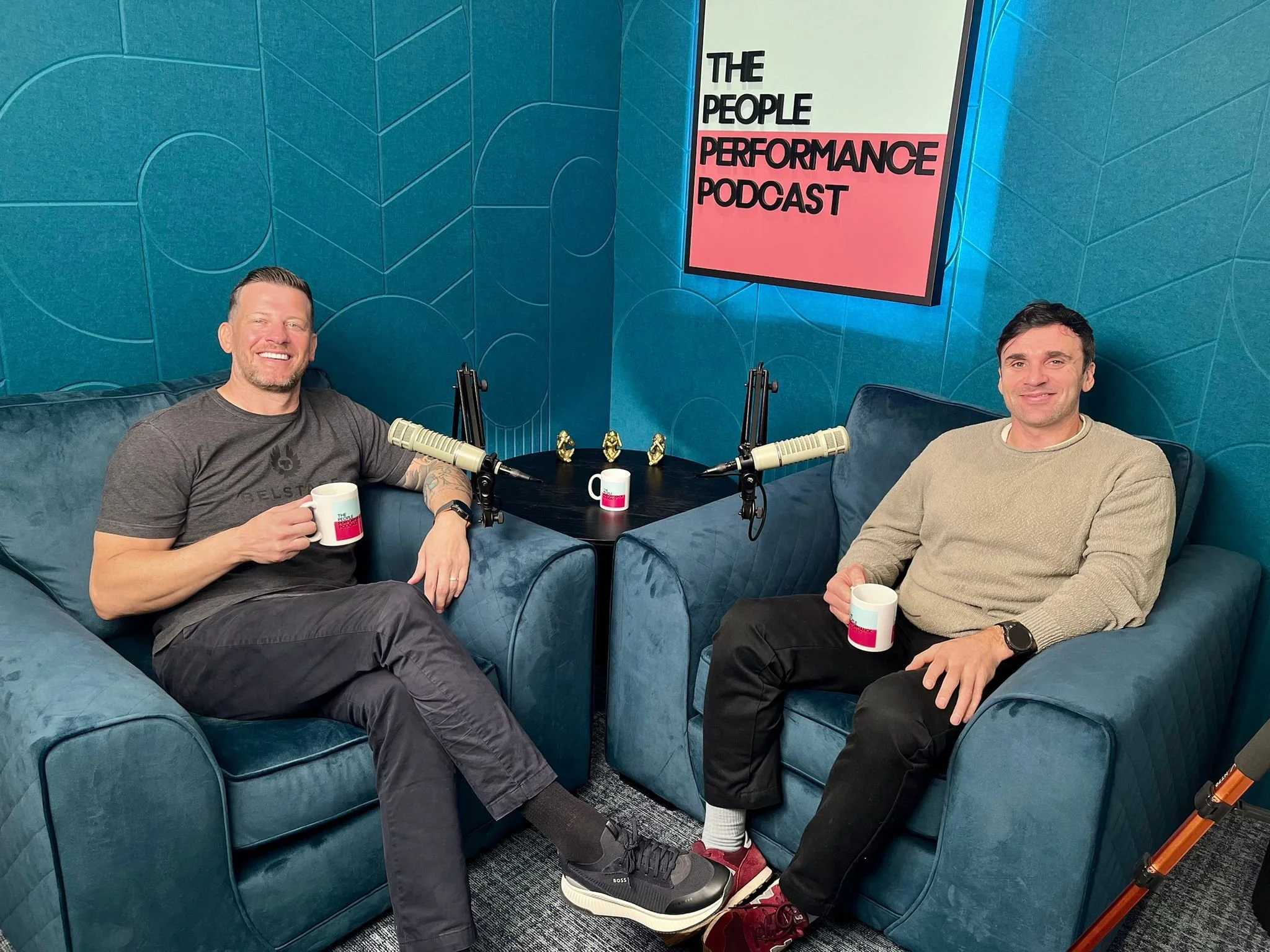Purpose, presence and perseverance: Leadership lessons from Mark Peart
In the latest episode of The People Performance Podcast, our founder and CEO, Martin Johnson, spoke with Mark Peart, a firefighter, endurance athlete, men’s mental health advocate, and winner of SAS: Who Dares Wins Series 4. What emerged from their conversation were profound insights about leading through adversity, finding purpose in darkness, and the critical role leaders play in creating space for people to thrive.
Give people purpose, not just time off
When Mark lost his wife Chelsea to suicide in 2018, he was immediately placed on six months of bereavement leave. Well-intentioned, but, as Mark reflects, potentially devastating.
“You’re then sat at home alone with your thoughts. It’s not a good place to be,” he shared. “Chelsea had three months away from work prior to taking her life. I arguably think it was the worst thing that happened. She suddenly had no purpose, no reason to get up.”
When Mark’s friend persuaded him to train for a fitness test to take part in SAS: Who Dares Wins, it gave him something to focus on. “It refocused my mind,” Mark explained.
For leaders, this means understanding that support isn’t one size fits all. Some people need space, while others need structure. The skill lies in reading the individual and potentially offering modified duties or phased returns that keep people connected, without overwhelming them. Purpose isn’t a luxury during difficult times, but often what keeps people moving forward.
Stay present when doubt creeps in
Throughout the podcast, Mark demonstrated a fascinating paradox. Here’s someone who completed one of the most gruelling selection programmes on television, who regularly takes on 250-kilometre ultramarathons, yet he admits: “Even driving here today, you kind of go through that process of thinking, should I turn around?”
Before the SAS: Who Dares Wins fitness test in London, surrounded by elite athletes, Mark felt completely out of place. “I was thinking, I’m just a duck egg from Rotherham that plays a bit of football and runs a bit. What am I doing here?”
Yet Mark won the show. Not because he was the strongest or the fastest, but because he could stay present in the moment.
“I think when you’re immersed in a task, the shackles of fear of failure were off,” Mark explained. “The worst bits were when you got to relax – you’re just full of anxiety. But when you’re in it, you’re focused on the task.”
Again, the relevance to organisational leadership is strong. The leaders who succeed aren’t necessarily the most confident or the loudest in the room. They’re the ones who, despite their doubts, show up consistently and stay focussed on what needs doing right now.
Simplify when complexity overwhelms
Mark describes his ultramarathon challenges as bringing “a bit of clarity” to life. “It really simplifies life. When you’re going through stuff like that, it’s moving, eating, sleeping. They’re the only things you need to worry about. Nothing else.”
During the interrogation phase of SAS: Who Dares Wins – 24 hours of stress positions, sleep deprivation, and psychological pressure – Mark couldn’t think about strategy or end goals. He could only focus on surviving the next moment. That extreme focus, that radical simplification, is what got him through.
Leaders facing crises can apply this principle. Don’t try to solve everything at once. Identify the critical path. Focus the team on the immediate, essential actions. Create clarity through simplification.
Build networks before you need them
Perhaps the most critical insight from Mark’s story is the role his support network played. When tragedy struck, a friend showed up every single day for weeks, even when Mark refused to see him.
“He’d knock on the door every day. I’d say ‘no, I don’t want to speak’. And he’d just go, ‘no worries’, and walk away. Then he would come back the next day. One day, I just thought, I’ll go for a walk. And that was the first step.”
That friend’s persistence, without pressure, created the conditions for Mark to begin moving forward. But crucially, that relationship, and others, existed before the crisis hit.
For leaders, this underscores the importance of building genuine relationships during normal times. Foster a culture where people check in on each other. Model vulnerability. Create psychological safety. Because when crisis comes – and it will – those networks become lifelines.
Keep moving forward, even when it’s hard
As the podcast drew to a close, Martin observed that Mark’s story demonstrates that “you can overcome anything in life if you really want to, when you put your mind to it and you have the right people around you”.
Mark’s response captured the reality behind that inspiration: “People have to be prepared that there’s going to be work as well. I have to work hard every single day, just to get out of bed and to want to move forward. It’s not going to go how you want it to go. It’s about having that ability to keep moving forward when it’s not going exactly how you want.”
This is perhaps the most honest leadership lesson of all. There’s no magic formula. Just the daily work of showing up, making the next right choice, and moving forward despite doubt, despite setbacks, despite the voice that says to turn around.





